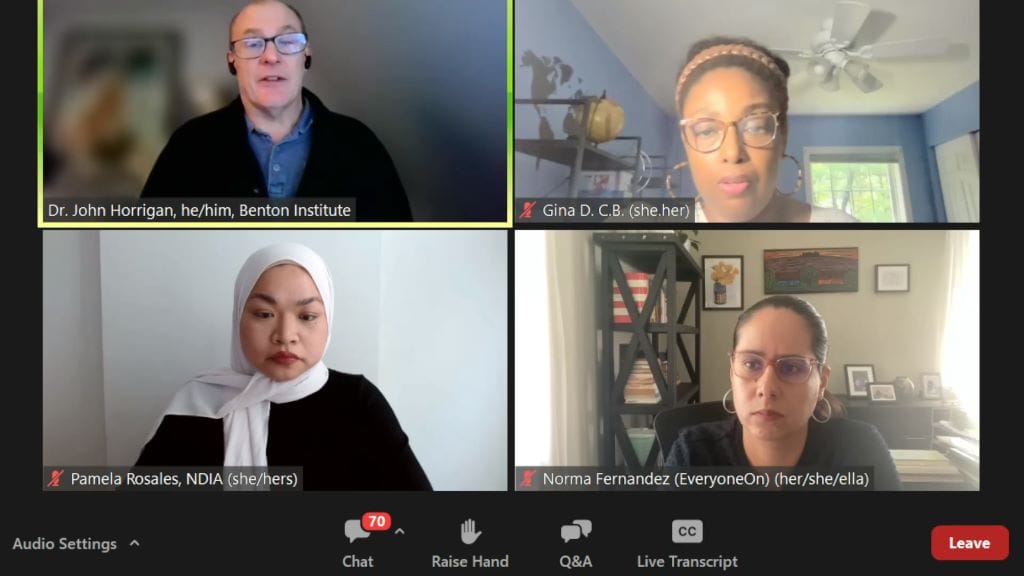Anchor Institutions Play Key Role in Digital Literacy: Benton Senior Fellow
55 percent of people surveyed were not confident in their ability to use the internet, a study found.
Sudha Reynolds

WASHINGTON, October 13, 2022 – Anchor institutions should teach digital skills to low-income communities because they play a pivotal role in getting communities connected, said a senior fellow at the Benton Institute.
John Horrigan said at a National Digital Inclusion Alliance event on October 5 that skills training within communities is critically important to teaching digital skills and literacy, which will contribute to bridging the digital divide.
Horrigan said anchor institutions – such as schools and libraries – can play a significant role to help communities get online and increase their digital knowledge.
He said anchor institutions could provide resources for digital skills training and are more likely to be trusted to deliver a message to the public about items such as low-cost internet offers.
People with low-income typically lack digital skills and literacy and are generally not able to afford a digital device for their home, according to a 2021 study co-conducted by Horrigan, which found 31 percent of low-income communities tend to trust public libraries most.
Only 23 percent of those surveyed had low levels of digital skills, according to the study. The study also found that 55 percent of people surveyed were not confident in their ability to use the internet or access government services.
Digital literacy
Larra Clark, a deputy director at the Public Library Association, said in August that the libraries’ close connection with community members allow them to act as gateways for digital literacy.
That same month, AT&T said it would contribute $6 million for digital literacy workshops in an effort to help more than 65,000 people learn to use mobile devices, navigate the internet and avoid digital scams, part of the company’s $2-billion effort toward that end.









Member discussion